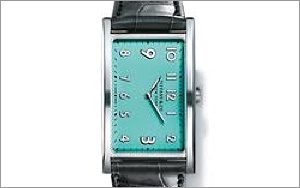retail
Tiffany, Cartier Rank Highest In Digital IQ
- by Sarah Mahoney @mahoney_sarah, December 28, 2015
 Among the many watch and jewelry marketers fighting for sales among luxury shoppers, only Tiffany & Co. and Cartier earn L2’s “Digital Genius”
distinction.
Among the many watch and jewelry marketers fighting for sales among luxury shoppers, only Tiffany & Co. and Cartier earn L2’s “Digital Genius”
distinction.
Tiffany earns its No. 1 score partly for its powerful search performance, as well social media campaigns like “Concierge of Love,” which include interactive gift guides. And Cartier lands at No. 2 due to its YouTube skills, collecting more than 90 million views, and its strong mobile offerings.
L2, which benchmarks the digital performance of consumer brands, bases 40% of a brand’s score on its Web site and e-commerce capabilities, 35% on digital marketing, 15% on mobile and tablet offerings, and 10% on social media efforts.
Alex and Ani, David Yurman, Pandora, Shinola Detroit, Swarovski, Chopard, Van Cleef & Arpels, and Tag Heuer round out the top 10.
advertisement
advertisement
The report, which analyzed 66 brands, also points out that these are uneasy times for luxury bling, with more than 40% of Swiss watch executives saying they are pessimistic about the economic outlook, (vs. 14% who remain optimistic), according to Deloitte Research.
Smartwatches are a growing threat, despite the relatively disappointing results of the Apple Watch. Some 25% of the executives in the Deloitte survey say smartwatches pose a threat, up from 11% last year. And supply-and-demand imbalances in diamonds are still a problem.
What’s more, this highly fragmented market has been upended by digital, with many challenger brands crowding out the high-end brands that have been nurturing their image for decades. (Names like Mikimoto, Faberge and Bulova are ranked as “challenged,” and didn’t even crack the top half.)
L2 says that between the 10 brands that control some 40% of global sales in this highly fragmented market and the ten brands that control about 75% of traffic to brand Web sites, only three make both lists:
Tiffany & Co., Rolex, and Omega, “signaling a reshuffling of the deck favoring challenger brands attracting a disproportionate share of online equity.”
The report also finds that the social-media landscape has undergone big shifts in the last year, with Facebook engagement continuing to decline, and “Instagram continues to drive unparalleled organic brand engagement no longer possible on Facebook.”
Twitter has stayed constant, with an insignificant share of interactions.


